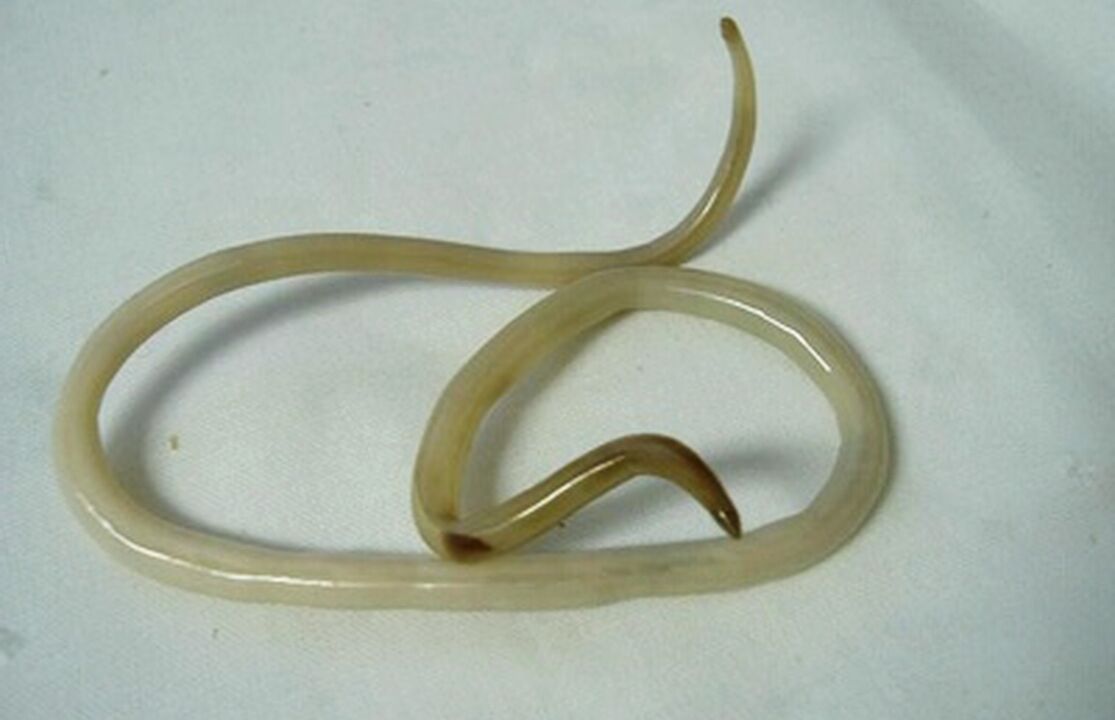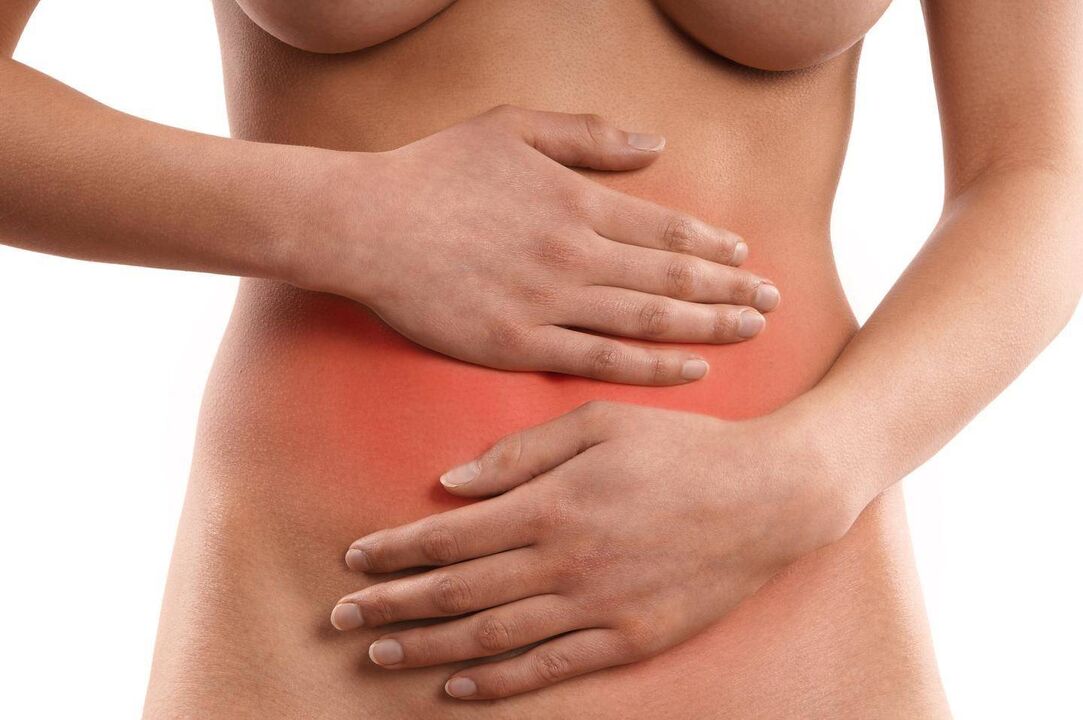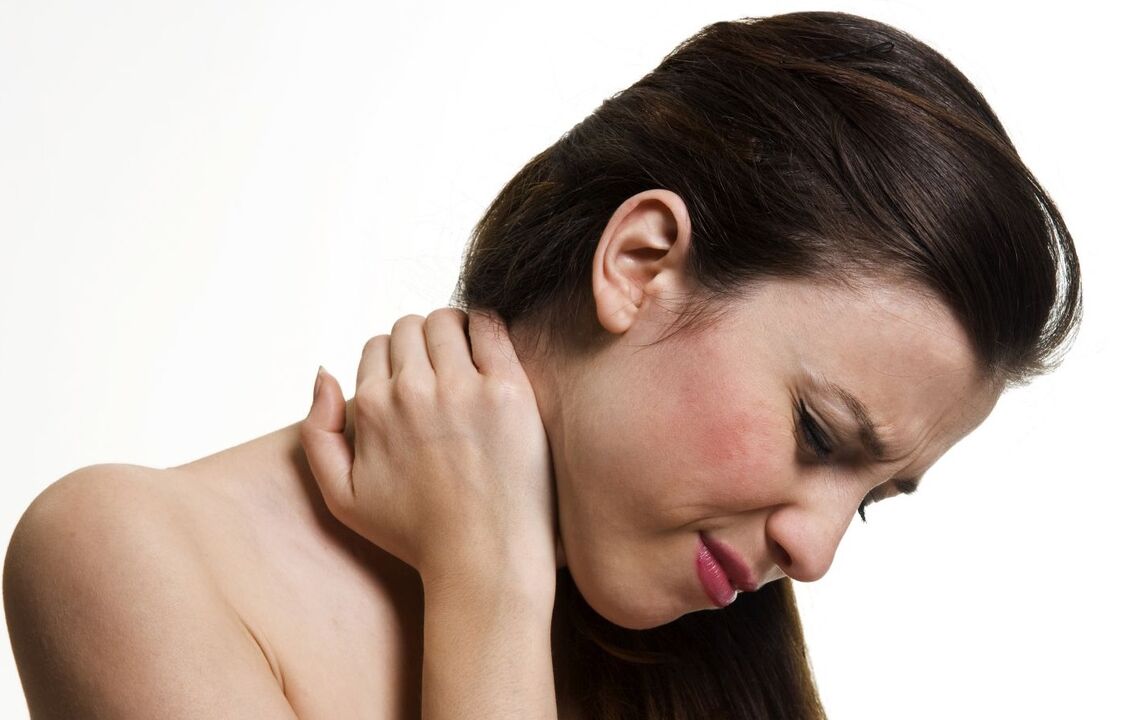Helminthiasis is common in the modern world. They can affect many organs and tissues and disrupt their work. In addition, the clinical manifestations of human helminthiasis may be very diverse. What are the symptoms of worms in humans?
According to statistics, about 2 million people are infected with worms every year, but considering the unregistered cases, this number may increase several times. Infections are more common in children and adolescents.

All worms can be divided into extraintestinal (tissue) and intestinal tract. The host of the organization is animals, and humans are their intermediate hosts. In this case, the disease will manifest in different ways, depending on which organ the larva will migrate to. For example, if the larvae migrate through the lungs, then the symptoms will be similar to pneumonia, if through the intestine-bleeding, inflammatory response; migration through the pancreas or bile ducts may block them.
How can you be infected?
What are the routes of infection?
- Through soil and water (soil worm disease)-soil pollution occurs when worm eggs enter the soil with human or animal feces. If you eat unprocessed root vegetables or water from open reservoirs, worm eggs will enter the body. Therefore, all vegetables, fruits, and berries must be thoroughly washed with tap water and treated with boiling water. Drinking water from open reservoirs is prohibited. This type of infection is also possible when people come into contact with animals, especially pets. Therefore, children are more likely to be infected while playing with them.
- Contact with infected persons (such as pinworms). During sleep, pinworms can crawl out of the anus and lay eggs. The patient has itching. The eggs will remain on the hands, under the nails, and if they are not removed from the skin in time, they will remain on all the objects that the infected person has touched.
- Biological helminthiasis-infection when eating meat, lard, and fish that have not been sufficiently heat-treated or eaten raw.
- Through insect bites.

Worms are basically a problem for children, because in the process of understanding the world, children will put dirty hands and various objects into their mouths and taste them. This problem will not be resolved until the age of three to six. Before that, the risk of infection in children was higher than that in adults.
Common signs of infection
What signs will indicate the appearance of helminthiasis?
Symptoms of helminthiasis may be similar to diseases of certain organs: gastrointestinal tract, respiratory system, nervous system, immune system. Helminthiasis can manifest as an allergic reaction.
Gastrointestinal disease
The location of the parasite in the intestine is manifested by symptoms of stomach and intestinal discomfort: vomiting, diarrhea or constipation, nausea, abdominal distension, umbilical pain, and pain in the right flanks. Constipation may be related to the mechanical obstruction of the intestinal lumen by worms. The severity of symptoms depends on the number of worms in the body.
Nervous system diseases and general manifestations
They are related to the release of toxic substances from parasites. The intensity of performance also depends on the number of worms. The symptoms of nervous system dysfunction are as follows: dizziness, headache, nausea-similar to the symptoms of migraine. Fever, muscle and joint pain are possible. Drowsiness, irritation, sleep disturbance, and anemia occur.
Allergic manifestations
Allergic manifestations can affect the gastrointestinal tract, skin and respiratory system. Itching, shortness of breath, headache, dizziness, and sometimes vomiting may be observed. There may be a burning sensation in the throat, mouth and nose. Stuffy nose and sneezing occur. How to distinguish the symptoms of allergies and worm infections? The following memory and laboratory signs should be considered:
- Relatives of the patient have no history of allergies;
- The patient has no history of allergic reactions;
- Children go to kindergarten;
- Difficulty breathing every two weeks;
- More than 8% of eosinophils in the blood test;
- Lack of anti-allergic treatment effect;
- In the study of immunoglobulins, IgE increased, while the study of allergens was negative.
If the patient has the listed symptoms, the allergic manifestations are related to parasite infestation.
Respiratory dysfunction
When the parasite enters the lungs, symptoms similar to pneumonia may appear: cough, fever, hemoptysis. A sore throat may also indicate helminthiasis. When worms migrate from the intestine to the lungs, a sore throat may occur. A sore throat is a sign of the presence of a foreign body. There is a dry cough that cannot be stopped. This cough is not only due to the presence of parasites in the throat, but also if they migrate through the nasopharynx. The mucus used for analysis will help identify worms in the throat.
Decrease immune defense
Since worms deprive the host of vitamins and minerals, and also have toxic effects, a decline in immune defense capabilities has been observed. This is manifested by frequent colds or alleviation of chronic disease worsening, inflammation of the throat.
Damage to the female reproductive system
Impaired female reproductive system function does not always indicate a gynecological disease. Worms in women can also be symptoms of reproductive system dysfunction. What symptoms can be used to suspect the presence of worms in female reproductive organs? The manifestation of female reproductive system being destroyed by worms is secretion, which is an unpleasant smell from the genitals.

In women, thrush may be a sign of helminthiasis. Due to decreased immunity and violation of the microbiota, women may develop thrush, which may be related to helminthiasis. Possible inflammatory diseases of the female reproductive system. At the same time, hair may fall out, nails may fall out, and drowsiness and fatigue may occur. The above are all symptoms of female worm invasion.
How to determine the type of worm by symptoms
How to determine which worms have invaded the body? Symptoms depend on the location of the parasite in the body and its type. When did the first symptom appear? The first signs of worm invasion may appear after two days and six months, depending on the type of worm.
Pinworm, pinworm disease-If you are concerned that the itching in the anal area becomes more frequent at night, you can suspect that these worms have invaded. Usually itching lasts for a few days, then disappears for a while and reappears.
Trichomoniasis, schistosomiasis, bilobal filariasis-the main symptoms are anemia and vitamin deficiency. This performance is related to the toxic effects of worms on the intestinal tract and the development of ecological disorders.
Roundworm-In the initial stage of roundworm infection, weakness, cough, blood in the sputum, fever, and suffocation are possible (the number of parasites is high). In the blood test, the level of eosinophils increased and an allergic reaction occurred. In the later stage, the function of the gastrointestinal tract is destroyed: protein is not digested, and weight loss is strong.

Trichinosis-The worm is located in the muscle. In the early stage of onset, it manifested as nausea, vomiting, and loss of appetite. In the next stage, the worms are located in the muscles, causing muscle pain, swelling of the eyelids, fever, and skin rashes. In addition, there is a noticeable recovery, but the worms are in the muscles. Parasites can cause dense lesions in the muscles.
Fasciasis, posterior testicular disease-If the skin becomes yellow, the liver, spleen enlargement, pancreas inflammation, gastrointestinal dysfunction, these parasites may be suspected of invading.
Strongyloidiasis-manifested as symptoms of biliary dysfunction, indigestion, and allergies.
Helminthiasis test
When should I seek expert help? An affirmative answer to the following questions will help diagnose the high probability of the presence of worms in the body:
- Itching in the anal area;
- feel sick and vomit;
- Constipation or diarrhea;
- Allergic manifestations;
- rash;
- Swollen lymph nodes;
- Frequent headaches and dizziness;
- Restless sleep
- Bitterness in the mouth;
- Tiredness, sleepiness;
- stomach ache;
- Yellow skin;
- The family has children in kindergarten;
- Muscle and joint pain, not caused by any reason;
- Periodic increase in body temperature;
- There are animals in the house;
- Eating meat, lard or fish that have not been sufficiently heat-treated;
- lose weight;
- Use unwashed vegetables and fruits that have not been treated with boiling water.
The more certain the answer, the greater the risk of worm infection in the body. If there are seven affirmative answers, then there may be worms. If there are more than fifteen, then the probability of worms in the body is very high.
diagnosis
What are the methods for diagnosing internal parasites?
- Feces on the eggs.
- Shaving from the anus.
- Scrape the heat rash.
- Complete blood count (increased eosinophil level).
- Scraping from the female's vagina.
- Blood tests for Giardiasis.
- Search for antibodies through serological methods; when can antibodies be found in the body? 21 days or more after worm infection.
- Research on surgical materials (for hydatid disease).
- Lymph node biopsy (cysticercosis).
- Muscle biopsy-Trichinosis.
treat
For the treatment of helminthiasis, the range of action of the tablet is very narrow and wide. Certain drugs must be used to treat certain types of worms. Pills can only be prescribed by a doctor after all examinations, because anti-worm drugs have a toxic effect on the body. Therefore, the doctor will choose the necessary treatment plan and duration according to age and weight.
The following tablets are commonly used to treat helminthiasis:
- Medicines containing mebendazole are suitable for the treatment of dermatosis;
- Tablets containing levamisole-used for ascariasis, pinworm disease, trichostrongysis, strongyloidiasis.
In advanced cases, the pills may not help, and then surgery is used.

























